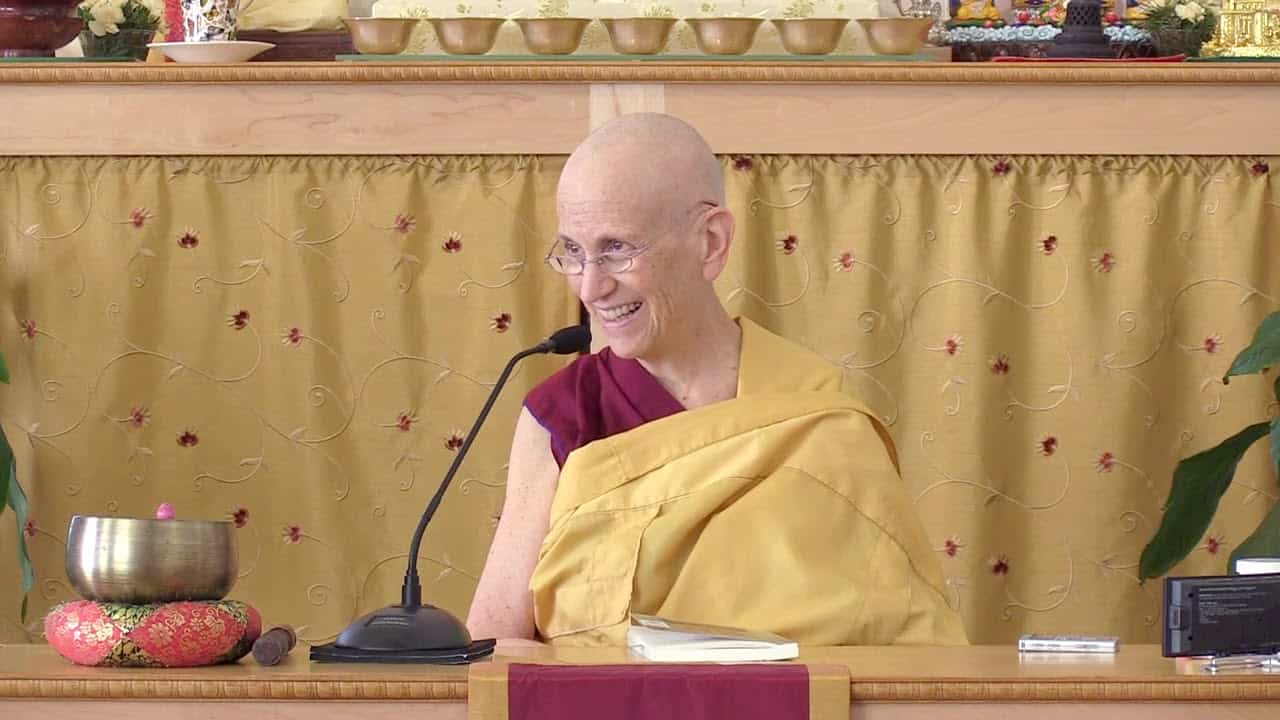Imperceptible forms
79 The Foundation of Buddhist Practice
Part of an ongoing series of teachings (retreat and Friday) based on the book The Foundation of Buddhist Practice, second volume in “The Library of Wisdom and Compassion” series by His Holiness the Dalai Lama and Venerable Thubten Chodron.
- Perceptible and imperceptible forms
- Ethical restraints, anti restraints, other imperceptible forms
- Pratimoksha, concentration and unpolluted restraints
- Strong intention to engage in non virtuous actions
- Making offering to Sangha, offering useful items to travellers, sick
- Asking someone to do an action, constructive or destructive
- Reasons for asserting the existence of imperceptible forms
- Unpolluted, meditative equipoise, post meditation
- Combinations of bright karma and gloomy karma
- Realms in which bright and gloomy karma are created
The Foundation of Buddhist Practice 79: Imperceptible Forms (download)
Contemplation points
- Explain in your own words the three pots of listening to teachings. Make personal examples. How do you envision remedying them?
- How are the bodhisattva and tantric precepts different from the pratimoksha precepts?
- One of the virtuous imperceptible forms depends on making offerings of things that support the Sangha (food, meditation cushions, building…) as well as helping those who are sick, poor, guests, medical professionals, etc. How have you participated in this? Rejoice in this virtue! How is it that we create merit when OTHERS create merit? What is it in OUR mind that facilitates this?
- Another form of virtuous imperceptible karma is encouraging others in virtue. Take some time to think about this. What are ways you have encouraged others in virtue? What are some times that you had the opportunity but didn’t? What might you do differently next time?
- Explain why it can be virtuous to ask another person to take on a task of yours?
- What are examples of the four combinations of gloomy and bright karma and results?
Venerable Thubten Chodron
Venerable Chodron emphasizes the practical application of Buddha’s teachings in our daily lives and is especially skilled at explaining them in ways easily understood and practiced by Westerners. She is well known for her warm, humorous, and lucid teachings. She was ordained as a Buddhist nun in 1977 by Kyabje Ling Rinpoche in Dharamsala, India, and in 1986 she received bhikshuni (full) ordination in Taiwan. Read her full bio.


